Lemeilleurthedechine
Roasted Wulong Wuyi rock tea tea – Fujian - 250g - 2018
Roasted Wulong Wuyi rock tea tea – Fujian - 250g - 2018
Couldn't load pickup availability
Rou Gui Wuyi Rock Tea – Legendary and powerful. A floral and mineral alchemy born from the sacred rocks of Wuyi Shan.
Origin: Fujian, China — Rugged Wuyi Mountains
Specificity: Roasted, semi-oxidized (60 to 70%) rock oolong tea
Packaging: 250 grams divided into individual 8-gram tea bags
Bouquets:
Nose (dry leaves): Intense and complex, blending notes of dry wood, black coffee, and cocoa bean.
Smell (wet leaves): Apricot, osmanthus, blackberry and prunes, leather, roasted coffee. Warm aromas of gingerbread, toasted bark, and a hint of caramel.
Taste (palate): The infusion reveals a full-bodied, dense, and creamy liquor. The palate is marked by a woody and toasty attack, quickly followed by indulgent flavors of dark chocolate, roasted nuts, and ripe fruit. The finish is long and silky, with slightly smoky notes.
Properties: Traditionally valued for its digestive and invigorating properties, Da Hong Pao is a true source of vitality and well-being.
Rich in polyphenols and trace elements, its enveloping liquor supports moments of calm, refocusing, and meditation. It promotes mental clarity, a good spirit, and a healthy inner energy.
This tea elevates the mood, awakens the senses, and offers a gentle yet profound energy, ideal for fostering concentration, serenity, and emotional balance.
Dosage: Each 8-gram tea bag makes approximately ten infusions, even for several people.
Short infusions are recommended at first to fully enjoy the rich aroma.
Preparation: Use filtered, low-limescale water. Bring to 100°C and briefly rinse the leaves while still hot before the first infusion.
Second infusion: 6 seconds
Third infusion: 9 seconds
Continue, gradually increasing the infusion time (12 seconds, 15, etc.)
The water must pass quickly through the leaves to avoid saturating the aromas.
Tonalities: The liquor, an intense coppery amber, is clear, bright, and dense, with mahogany red highlights. Its luminous hue reflects the mineral richness of the terroir and the artisanal mastery of the roasting process.
Storage: Store in a cool, dry place away from strong odors.
Thanks to its artisanal roasting, Da Hong Pao ages beautifully: the aromas soften, gain complexity and roundness, revealing nuances of candied fruit, noble wood, and sweet spices over time.
Legendary Origin: Legend has it that the mother of a Ming emperor (often attributed to Emperor Shenzong or Wanli) fell seriously ill. A monk is said to have offered her an infusion made from leaves grown wild in the Wuyi Mountains. She miraculously recovered. In gratitude, the emperor is said to have sent a large red silk robe to cover these tea plants, honoring them—hence the name Da Hong Pao, which literally means "great red robe."
The legend of the Da Hong Pao and the "great red robe" offered to the tea plants that cured the mother of a Ming Dynasty emperor is one of the most famous in the world of Chinese tea, but it is not historically proven.
The Six Original Tea Trees: There are said to be six ancestral tea trees planted on the cliffside in a protected area of the Wuyi National Park. Today, four of them still survive. They are considered the mother trees of Da Hong Pao, listed as a cultural heritage site, and harvesting has been completely prohibited since 2006.
Last Harvest: The last official harvest of these trees dates back to 2005. The harvested leaves were auctioned for astronomical sums (over USD 30,000 for 20 grams).
Propagation by Cuttings: The Da Hong Pao we consume today generally comes from clones or cuttings of these ancient trees, planted elsewhere in the Wuyi Mountains or even in other provinces.
Share
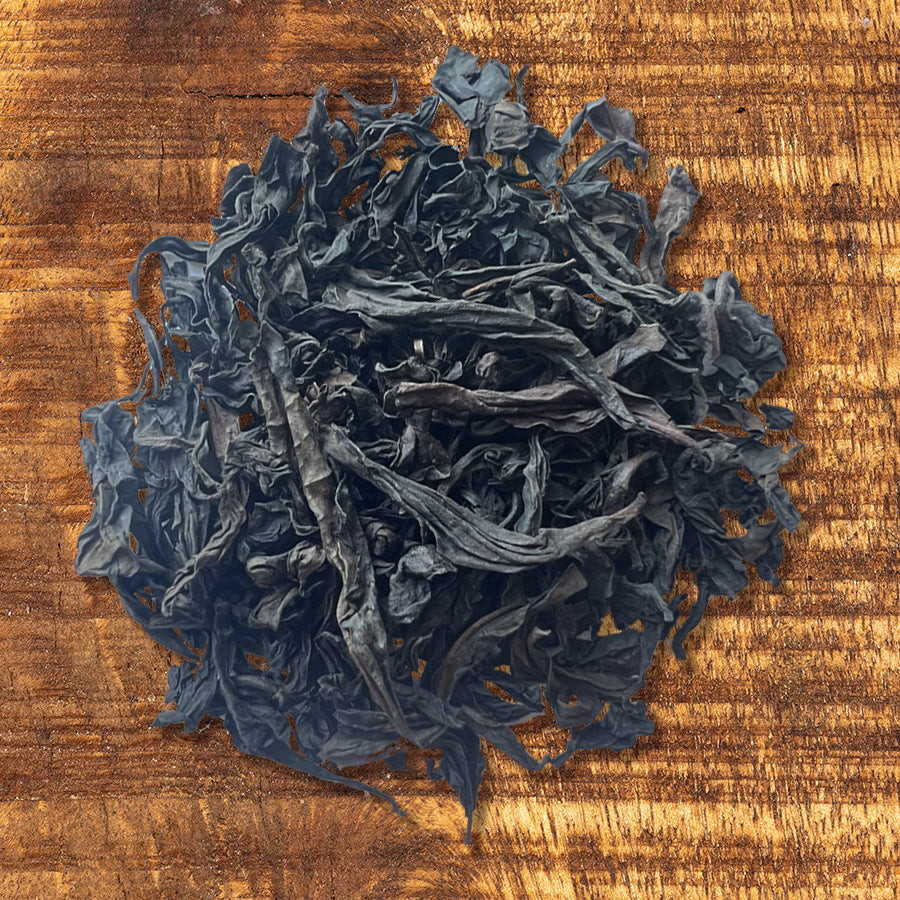
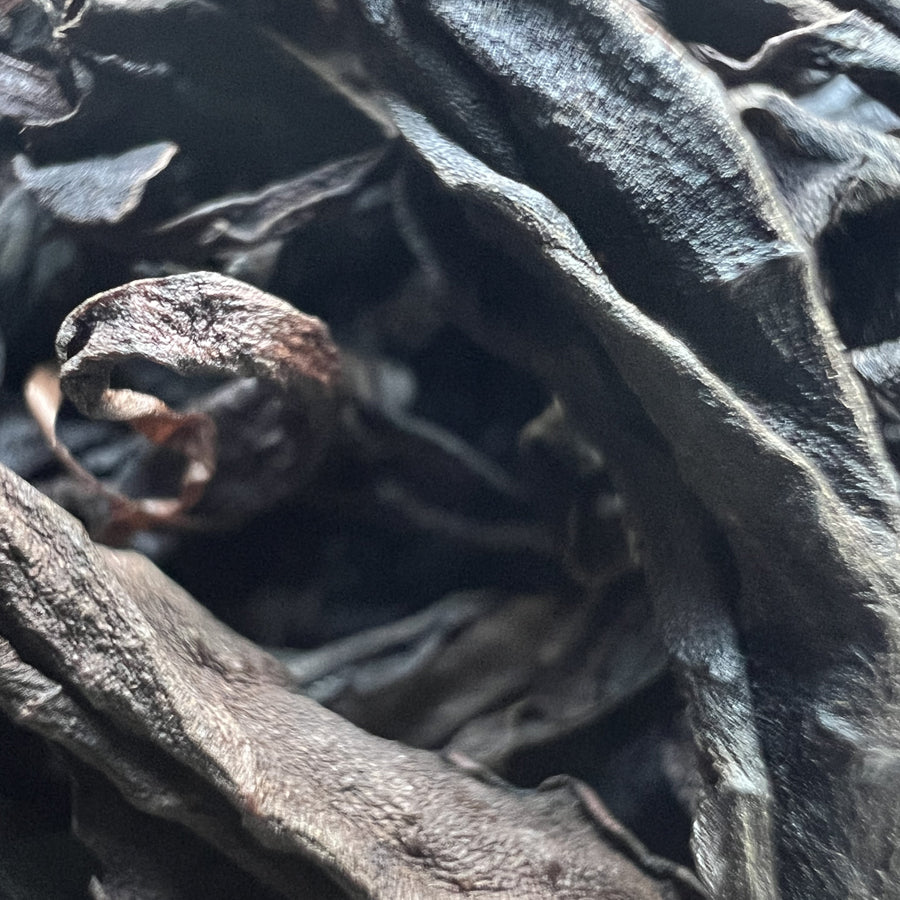
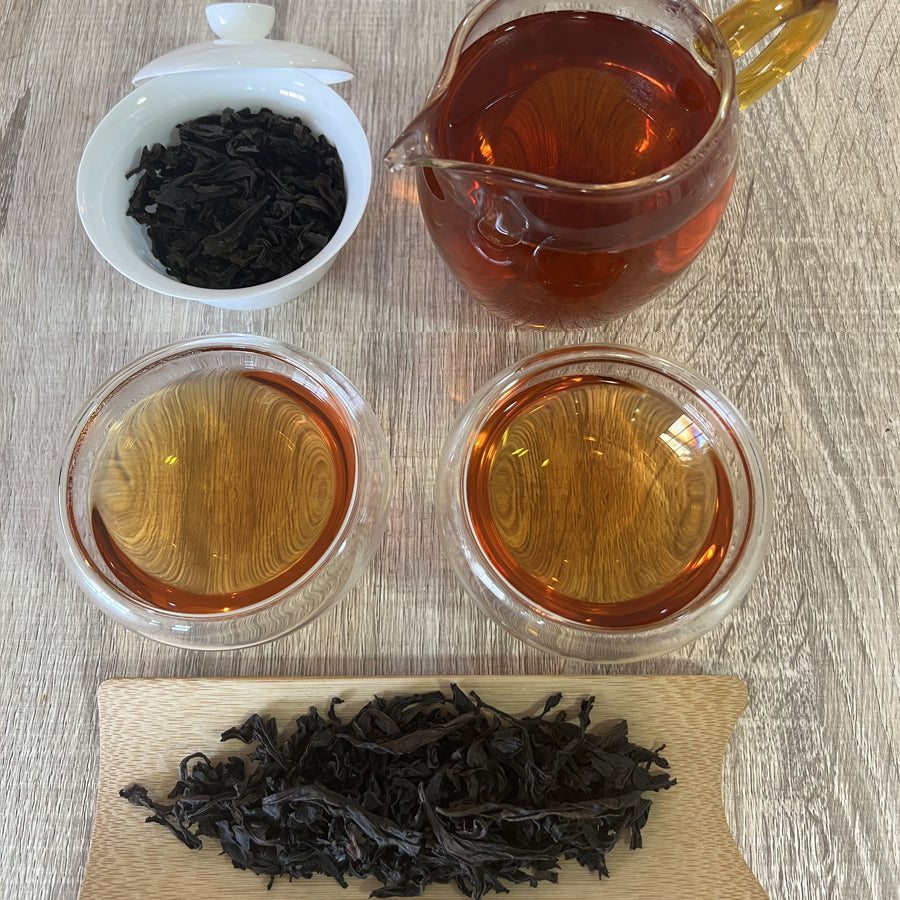
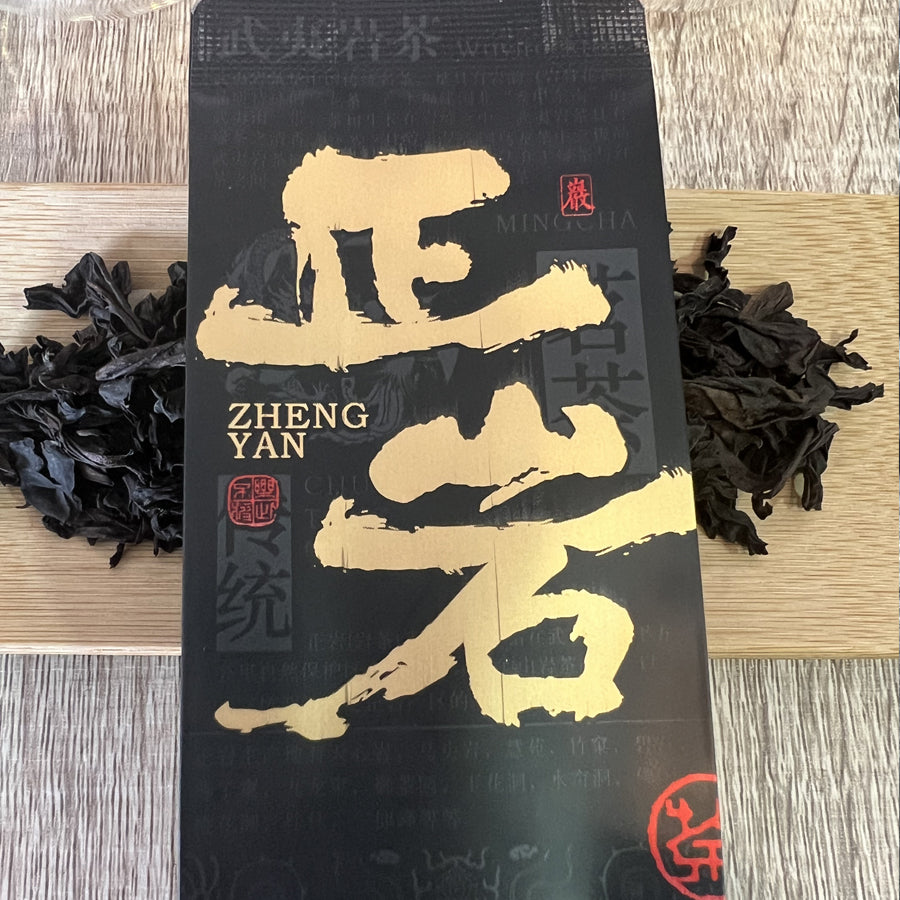
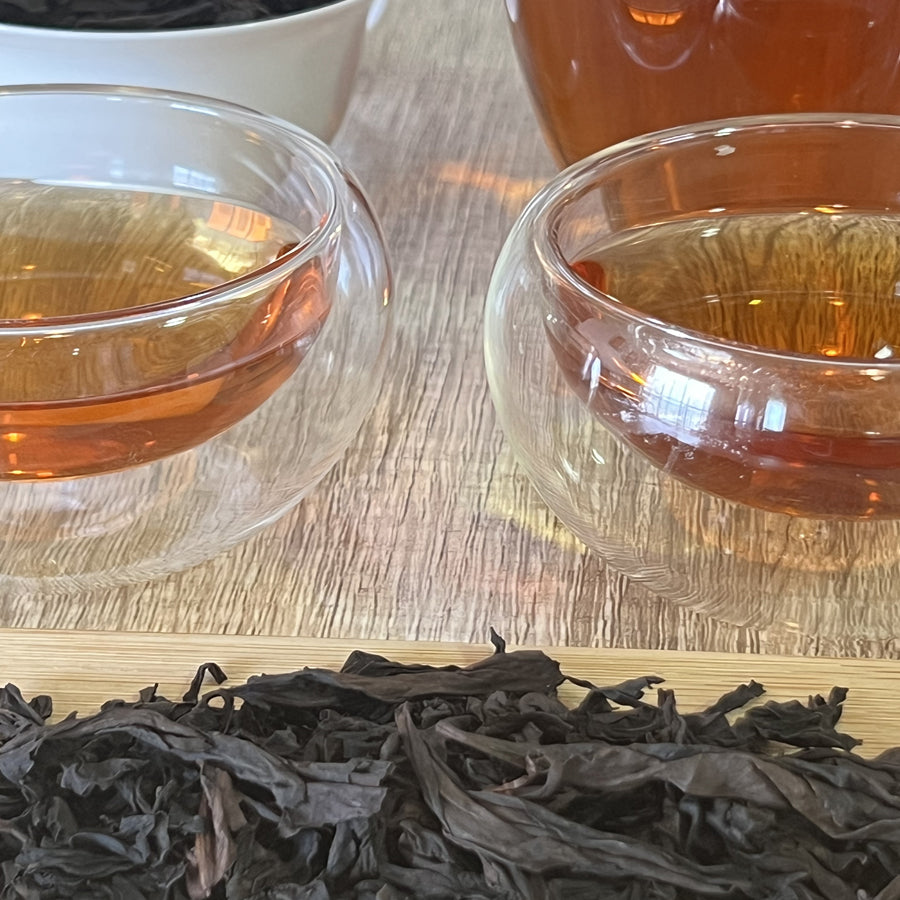
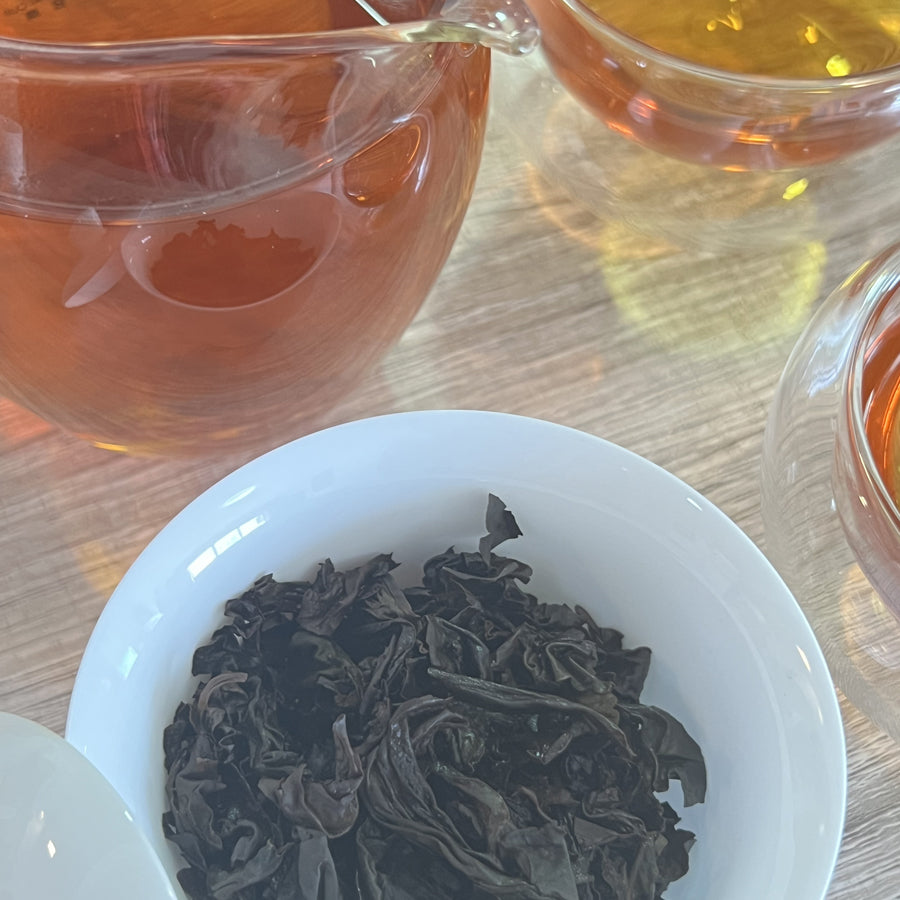
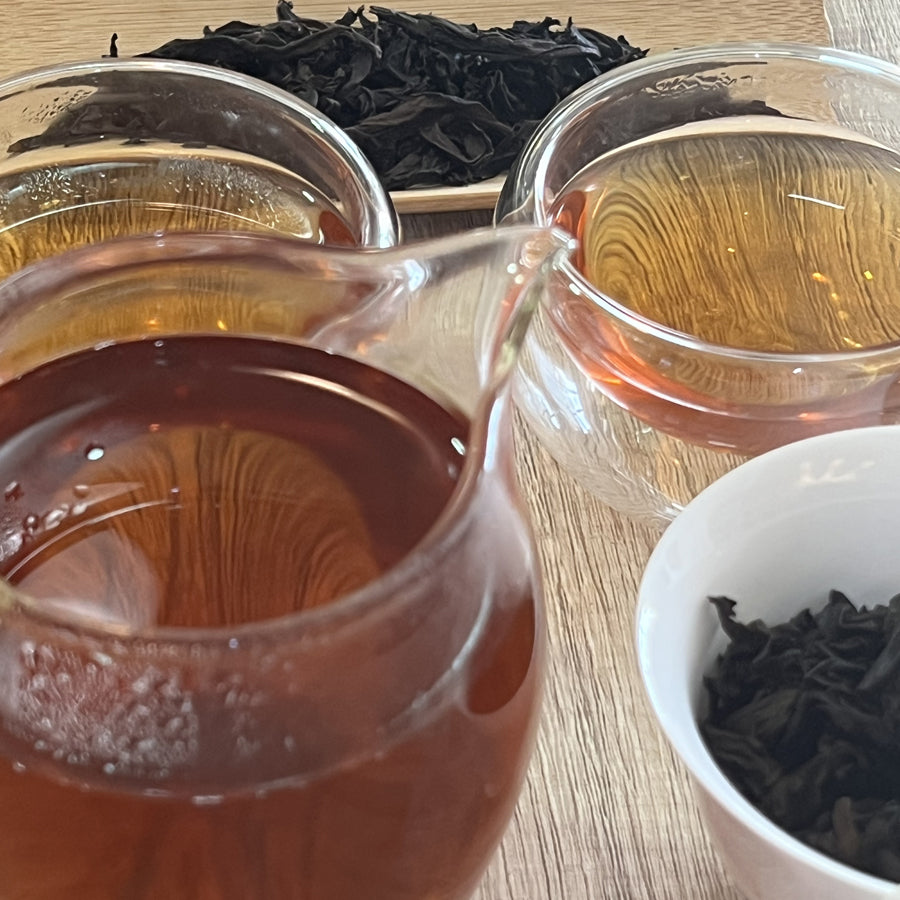
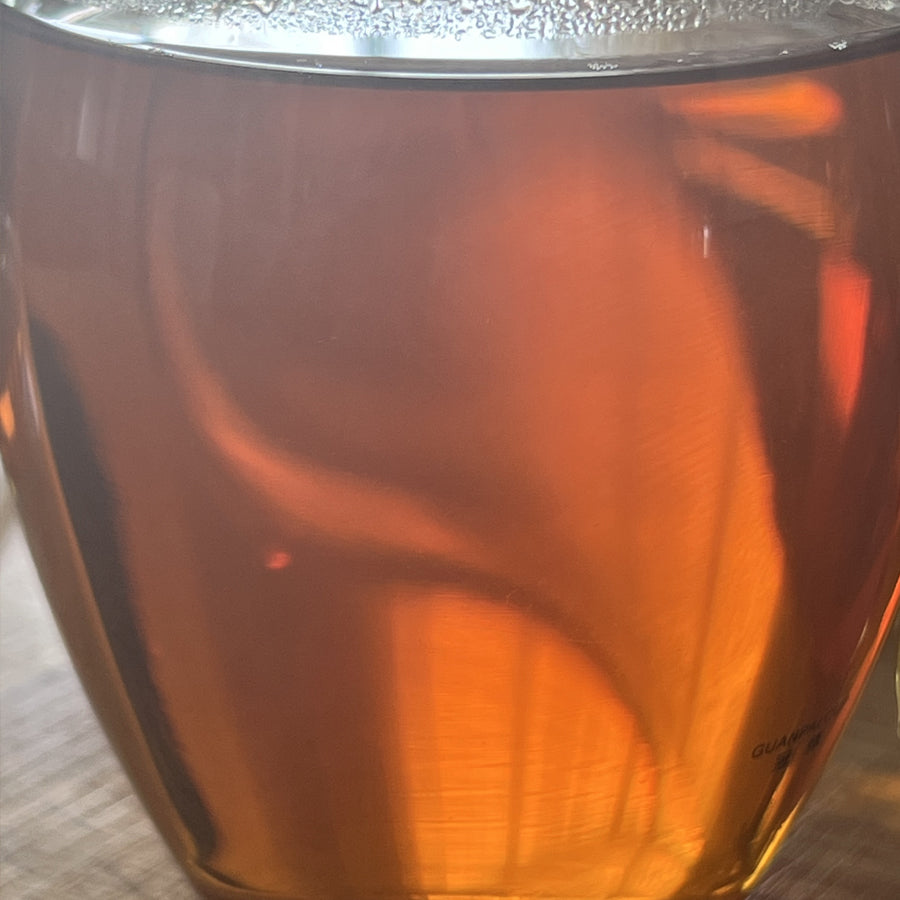
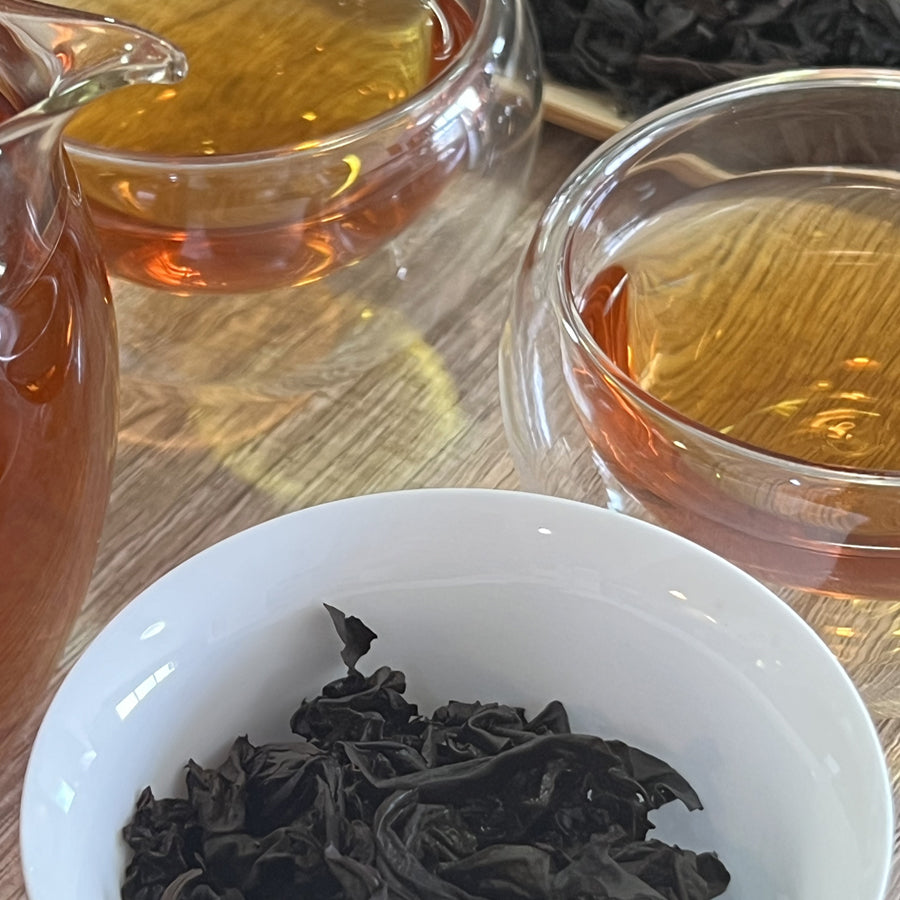
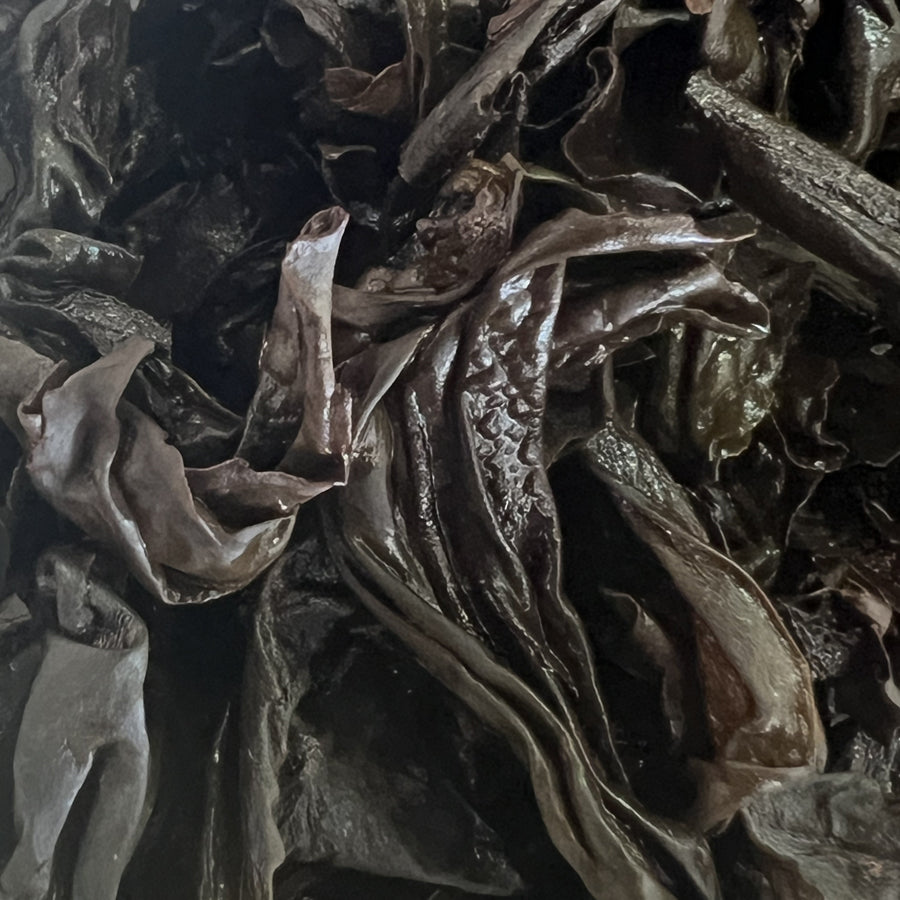
Let customers speak for us
from 37 reviewsProduit d'excellence !!! Après diverses expériences sur d'autres sites c'est désormais ICI et uniquement que je ferai mes commandes !!! Tout est parfait !!! Conseils, suivi, expédition... Merci pour tout cher Alexandre.
Bonne continuation
Ma commande est arrivée très rapidement, toujours bien emballée, avec toutes les indications afin de profiter du meilleur du thé

I give seven stars out of seven. Great tea. Very tasty, refreshing, toning and invigorating. I also want to note that this cake lasts for a very long time. Super 🙌 , Alexander, thank you and express my respect 🫡!!!

Very good, time-tested and tasted tea by me personally, more than once. Excellent rich and at the same time soft taste. Very powerful effect and tangible benefits. A cup of this tea will not leave you indifferent. This is one of my favorites. There should always be such kindness. This is not my first brick, and I really recommend it to both connoisseurs and beginners. 👍👍👍Thank you! ☺️

I know that this raw puer has a wonderful taste of medium saturation and quite powerful and at the same time soft effect. Thank you Alexander for the constant quality! I recommend this tea to every connoisseur of truly high-quality healthy and invigorating drinks.

Unusual drink , with a slight taste of peach.
Very good indeed.
I have been a tea drinker for many years now, reading a lot about tea.
I was looking for tea pu erh resine since I’ve never tasted it.
That’ s how i found the « crème pu erh cuit » on Alexandre website « le meilleur thé de Chine ».
I really enjoyed drinking this crème de thé!
It taste like fermented tea no doubt about it , and it is very easy to prépare .

Great tea 🫖! I consider this option to be one of the most optimal in terms of price and quality ratio. Delicious taste, pleasant aroma and very noticeable effect. It feels like this product is really useful!

Discovered Chinese Resin Tea quite recently so went to the top-of-the-tree to compare. It took a while to tune in to various teas but I can now confidently say that this falls into that top category, quite delightful tea but the price is a bit of a stretch. Is it worth it? Yes, I will likely be tempted at some point again, I would suggest that you will never know what you missed until you try it.

Great product. Excellent taste, quality, and effect. A real raw Puerh. Connoisseurs will appreciate and understand what we are talking about! 👌🙂

I'm very satisfied. 😊 I really liked this tea. It is very dense and long-playing. Great taste, and the aroma already guarantees the quality.! 💪One of my favorites.

Great product. High quality combined with a rich aroma, such a unique taste, and an unforgettable aftertaste provides you with an equally unforgettable experience. I recommend this tea! 🫖 that's what you need. An important clarification - do not abuse otherwise it will be difficult to fall asleep and you will have to move a lot... 😁👍
A very good, high-quality and effective product. It has a soft and at the same time rich taste, an incomparable aroma and a pleasant aftertaste. One of the best. I recommend it to everyone.! 👍👍👍

Хотел заказать сперва черный чай пуэр, этот зеленый !

Tea blog
View all-
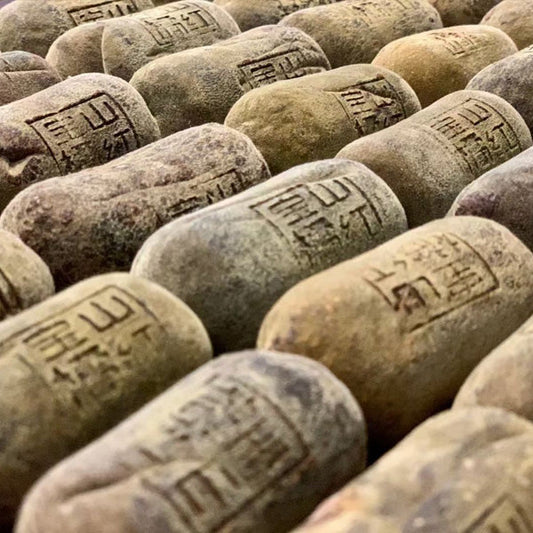
The Secret of the Mini Pomelo – Citrus grandis ...
The Mini Pomelo (Citrus grandis Tomentosa) is a complete natural remedy that acts on breathing, digestion, and overall vitality.It combines the wisdom of traditional medicine with the confirmation of modern...
The Secret of the Mini Pomelo – Citrus grandis ...
The Mini Pomelo (Citrus grandis Tomentosa) is a complete natural remedy that acts on breathing, digestion, and overall vitality.It combines the wisdom of traditional medicine with the confirmation of modern...
-
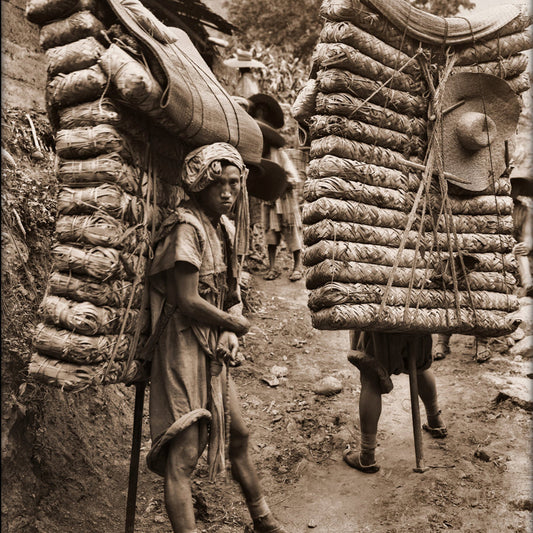
The road to the best tea in China
The road to the best tea in China
The road to the best tea in China
The road to the best tea in China
-
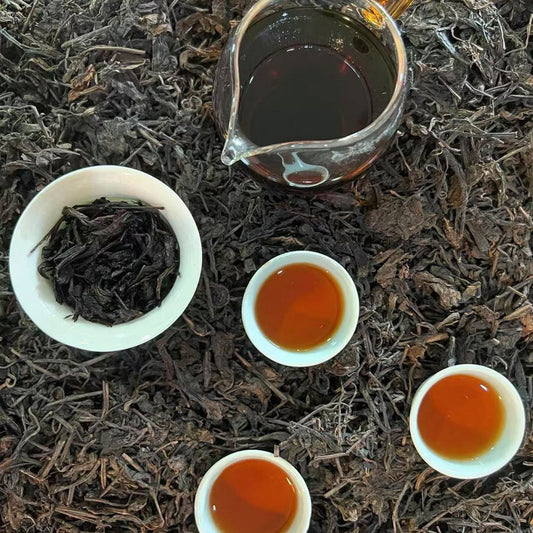
The quest for the perfect tea
There are moments that mark a life. For me, it was the day I tasted my very first aged Pu'erh tea . At the first infusion, a unique aroma rose from...
The quest for the perfect tea
There are moments that mark a life. For me, it was the day I tasted my very first aged Pu'erh tea . At the first infusion, a unique aroma rose from...

















